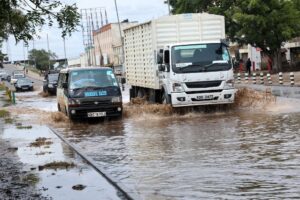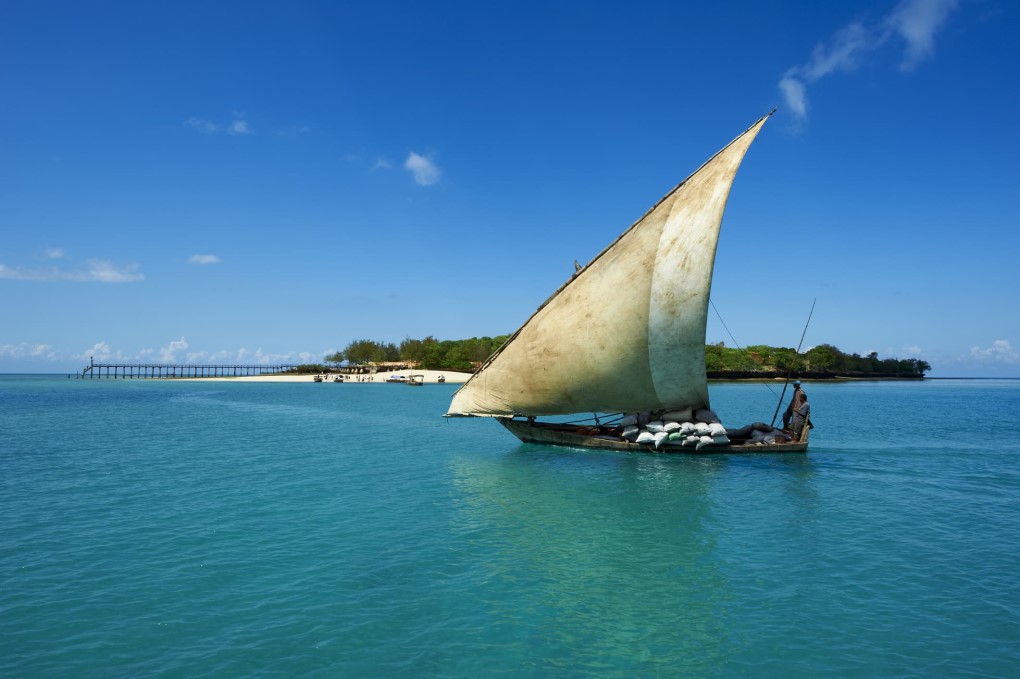What you need to know about Zanzibar’s Blue Economy?
According to the World Bank, the blue economy is the “sustainable use of ocean resources for economic growth, improved livelihoods, and jobs while preserving the health of ocean ecosystem.” European Commission defines it as “All economic activities related to oceans, seas and coasts.
Lawmakers role in Zanzibar’s Blue Economy
HOUSE of representatives in Zanzibar have been cited as key drives for an ambitious Blue Economy programme in Zanzibar.
Deputy Speaker of the Zanzibar House of Representatives, Mgeni Hassan Juma, stated this when she officiated at the opening of capacity building workshop on various Blue Economy instruments’ (proposed legislation) for the Members of the Zanzibar House of Representatives.
She said the progress towards a successful Blue Economy lies on the commitment, better laws and sustainable development of socioeconomic activities including fisheries, aquaculture and tourism.
“We need to work together to ensure that the Blue Economy and fisheries benefit all as the majority of people engaging in marine resources-related activities (seaweed and sardine drying) are women.
“Policies and laws along with researches in marine are important in achieving our goals,” Ms Mgeni emphasised.
The Minister for Blue Economy and Fisheries, Mr Suleiman Masoud Makame said the purpose of meeting was to provide an opportunity for Members of the House of Representatives to understand the development, so far, in the making of policies and laws on the Blue Economy in Zanzibar.
Ministry’s Permanent Secretary Dr Aboud Suleiman and other experts from the ministry made presentations on fisheries, aquaculture, marine conservation and research legislation, saying the legislation was important in realising the Blue Economy agenda, which leaves no one behind as it included gender.
UNDP’s Tanzania Economic Adviser, Ms Weyinmi Omamuli, said UNDP is proud to be partner of the government of Zanzibar in various initiatives.
She said UNDP fully supports the Ministry of the Blue Economy and Fisheries and all its initiatives and has Blue Economy high among its priorities.
“Since 2021 UNDP has been working with the ministry through a a number of initiatives, supporting development of various instruments to enable Zanzibar achieve the Blue Economy agenda which is the pillar for Zanzibar Vision 2050 to attain middle income status by that year,” she said.
Ms Omamuli said that the Marine Protected Areas Act will ensure better protection of marine resources and related biodiversity and ecosystem necessary for an ocean-based economy.
The law provides directives on how Tanzania can protect and conserve resources to ensure sustainability of the environment.
Legislator Mr Suleiman Makame thanked the ministry and the UNDP for facilitating the seminar.
“People engaging in fishing and seaweed farming and other marine resource activities, must be involved in making laws. Their views are important in having better laws.”
Source: allafrica.com
Share this news
This Year’s Most Read News Stories

The reason internet speeds in Tanzania still lag behind
Vodacom Tanzania was placed 16th at 17. ’08 Mbps, while Airtel Tanzania was ranked 18th available on 12. 89 Mbps.Continue Reading

East Africa Must Prepare for More Extreme Rainfall During the Short Rainy Season – New Study
East Africa has recently had an unprecedented series of failed rains. But some rainy seasons are bringing the opposite: huge amounts of rainfall.Continue Reading

Inside Tanzania’s Life-Saving Birthcare Model

Tanzania is winning the battle against maternal and newborn deaths, as the latest numbers reveal a significant decline.
“Tanzania is committed to reducing maternal and newborn mortality and ensuring safe deliveries as part of the national development plan. The Safer Births Bundle of Care is one of the key strategies supporting this effort,” said Dr. Benjamin Kamala, the Senior Research Scientist at Haydom Lutheran Hospital and Principal Investigator for the program, leading its implementation across five regions in Tanzania.
A groundbreaking study published in the New England Journal of Medicine shows that the innovative health program in Tanzania – centered on regular, on-the-job training for healthcare workers – reduced maternal deaths by 75% and early newborn deaths by 40%. The three-year study, conducted across 30 high-burden healthcare facilities in Tanzania, tracked approximately 300,000 mother-baby pairs under the Safer Births Bundle of Care (SBBC) programme. The programme focuses on improving care for mothers and babies during the day of birth, the critical time when a woman goes into labor and delivers her baby.
Maternal health is a key focus of the United Nations Sustainable Development Goals (SDGs), specifically Target 3.1, which aims to reduce the global maternal mortality ratio to fewer than 70 deaths per 100,000 live births by 2030.
Tanzania’s program combines continuous, simulation-based training for frontline healthcare workers alongside innovative clinical tools to improve labour monitoring (fetal heart rate monitoring) and newborn resuscitation.It also uses data to drive ongoing improvements, ensuring that healthcare workers have the skills, confidence, and competence to manage birth-related complications for both mothers and newborns.
“We work closely with healthcare workers, equipping them with the necessary tools to improve the quality of care, ensuring they can effectively manage both mothers and babies during and after childbirth,” Dr. Kamala said, which helps them build on over a decade of innovative research and collaboration to improve care during childbirth.
“To give you a sense of the scale of the burden of maternal and newborn mortality in Tanzania when the Safer Births Bundles of Care program was in early development in 2015/16, there were around 556 maternal deaths per 100,000 live births and 25 neonatal deaths per 1,000 live births,” he said.
The published study demonstrates the “transformative impact” of the Safer Births Bundle of Care program conducted across 30 hospitals in five high-burden regions of Tanzania, where there were about 300,000 mother-baby pairs.
Maternal deaths at the start of the program were recorded at 240 per 100,000 live births, with postpartum hemorrhage and hypertensive disorders being the leading causes of death, he said. Over the 24-month study period, this number dropped to approximately 60 per 100,000 live births, representing a 75% reduction. The number of newborn deaths – which are primarily due to breathing difficulties and complications related to prematurity – declined by 40% – from 7 deaths per 1,000 live births to 4 deaths per 1,000 live births.
“These results are remarkable,” Dr. Kamala said.
According to Dr. Kamala, the 75% reduction in maternal deaths was not expected, and a key lesson was the important role of the in-situ team simulations – including for postpartum bleeding – with reflective debriefings that trained facilitators led.
“This seems to be a major part of the success of the program,” he said. “We are delighted by these results and hope that other countries adopt and scale the Safer Births Bundle of Care program… Beyond the numbers, the Safer Births Bundle of Care program has fostered a dramatic culture shift in our healthcare system,” he said. “Healthcare workers are now more confident and better equipped to handle birth-related complications for both mothers and babies.”
Maternal death drop
Dr. Kamala attributed the 60-70% reduction in newborn deaths in Geita and Manyara to several factors.
“Firstly, Manyara was the first site for implementation, giving the region more time to adapt and experience the impact of the program. Most importantly, both regions had a high burden of stillbirths and neonatal deaths, making them ideal targets for focused intervention. As a result, newborn deaths decreased by 60-70%, showcasing a clear positive impact on newborn survival,” he said.
Dr. Kamala said another possible explanation is the differences in the culture of practices, where some health facilities reported inaccurate data due to the fear of blame and shame. However, with the project’s implementation, reporting became more accurate after mplementation. Some regions, such as Tabora, reported an increase in the number of referrals to the study hospitals from other care centers after the program was implemented. These were more likely to be late admissions, which increase the likelihood of poor health outcomes, he said.
After the implementation of the program, there was a 40% decrease in newborn deaths within the first 24 hours after birth, according to the study.
Dr. Kamala said Tanzania’s remarkable progress in reducing maternal mortality by 80% is driven by strategic investments and innovative programs focused on improving maternal and child survival rates.
“Over 2,000 new healthcare facilities have been developed, free health services are being provided to expectant mothers and children under the age of five, and emergency obstetric care – including better transport to hospitals in rural areas are helping to ensure timely, life-saving interventions.
“Most importantly, the Ministry of Health works in collaboration with healthcare workers, hospitals, and development partners to strengthen the skills of frontline healthcare workers, which has been a key factor in driving this progress.
“Political leadership, alongside strategic partnerships and financing, has been crucial in driving progress in maternal and newborn health,” he said.
The program was made possible by the support of the Global Financing Facility for Women, Children, and Adolescents, Norad, UNICEF, and Laerdal Global Health, as well as the Ministry of Health and Haydom Lutheran Hospital. Their partnership and investment enabled the scaling of the Safer Births Bundle of Care to 30 hospitals and supported the research. “The government has now scaled the program to over 150 sites, and there are plans for further expansion to three regions this year and then nationally,” he said.
Dr. Kamala outlined key policy recommendations for other governments can adopt to prioritize maternal health.
“Firstly, it focuses on cost-effective and relatively simple interventions that are essential to preventing maternal and newborn deaths. For example, stronger primary healthcare that is delivered in the community and a well-trained healthcare workforce are also critical. Additionally, working in close collaboration with national, regional, and local health authorities is key.”
He said Tanzania’s approach, where the Safer Births Bundle of Care program was successfully scaled and sustained by aligning the initiative with national guidelines for obstetrical and newborn care. In addition, the creation of mentorship programs and regular supervision has helped to sustain the results.
Looking ahead
Tanzania now plans to expand to three new regions in 2025, followed by a nationwide rollout.
The success of the program has attracted interest from other countries, with Botswana, Ethiopia, Lesotho, and Namibia expressing interest in adapting the program to their healthcare system. In Nigeria, the program has already been launched in two states, Gombe and Borno, marking a significant step in its scaling.
Source: allafrica.com










